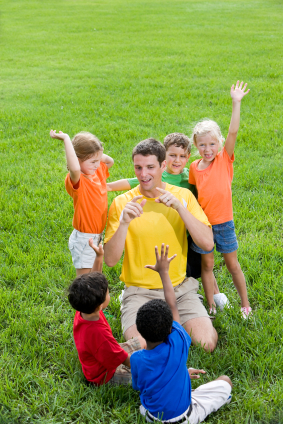Attending camp can be an unforgettable experience for young children, and it can have a positive effect on their psychological development, self esteem and independence, says the American Academy of Pediatrics (AAP) in a revised policy statement1 published in the April 2011 issue of the journal Pediatrics. 
The statement contains guidelines to help care for campers in all situations, including children with medical or psychological issues, and was reviewed and is supported by the American Camp Association.
Before camp starts
The AAP advises parents, before choosing a camp, to evaluate their child's interests, skills and overall well-being to make sure the child can effectively participate in a particular camp environment.
Parents should also medically and psychologically prepare their child for camp, and work with their pediatrician, camp health providers and administrators on a pre-camp health evaluation, which should include a comprehensive health history, including significant previous illnesses, surgeries, injuries (e.g. concussions), and allergies.
Before starting camp, parents should make sure their child has had all of his or her immunizations. For overseas camps, such as international soccer camps, parents should consult the Centers for Disease Control and Prevention traveler's health website or visit a traveler's clinic for information regarding particular immunization requirements or health concerns that may be associated with their child's destination.
Campers with significant medical histories or those with any of the following conditions that require long-term management should have specific medical clearance before attending camp:
- asthma
- seizures
- diabetes
- anaphylactic allergies
- immuno-compromise
- congenital abnormalities
- mood or anxiety disorders
- attention deficit/hyperactivity
Homesickness tips
To help prevent homesickness -- a common distress among campers -- the following tips, which have been found to significantly reduce the incidence and severity of homesickness,2 may be helpful for parents and prospective campers:
- Involve the child in choosing and preparing for camp.
- Be positive about the upcoming experience, and openly discuss homesickness.
- Avoid expressing personal doubts or concerns.
- Arrange practice trips or sleepovers away from home with friends or relatives.
- Avoid making pre-arranged "pick-up" plans, which can cause a child to question his or her independence.
Camp responsibilities
- Camp administrators should follow specific health policies and procedures addressing both major and minor injuries and illnesses, and train staff in proper storage and administration of medications.
- Camps should critically review the population they serve and the need for an automated external defibrillator (AED on site.
- Camps that have an AED or other emergency medical devices such as epi-pens or inhalers should be kept in easily accessible locations and ensure that medical staff are properly trained in their use (and in the administration of CPR and first aid). Note: campers should be instructed in their use before arrival at camp.
- Because of the recent H1N1 influenza pandemic and cases of methicillin-resistant Staphylococcus aureus (MRSA), the revised statement also includes a recommendation that camps should have an emergency management plan for infectious outbreaks and encourage good hygiene/hand-washing practices among campers.
- Camps should only serve foods that follow federal guidelines for school nutrition. Food should never be used as a reward, nor should withholding food be used as a punishment. Camp staff should model healthful food choices for their campers. At least 30 minutes of daily physical activity should be part of any healthy camp program (of course, this isn't going to be a problem if the child is attending a sports camp!).
- Because recent studies have found that between 50 and 75 percent of boys and girls attending summer sports camps are significantly dehydrated, plain water should be readily available for campers throughout the day, as well as sports drinks, where appropriate.
Source: American Academy of Pediatrics
2. Thurber CA, Walton EA. American Academy of Pediatrics, Council on School Health. Preventing and treating homesickness. Pedicatics. 2007;119(1):192-201.








